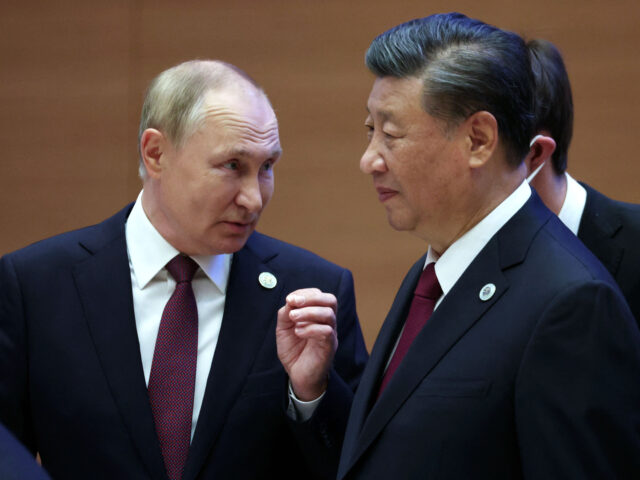The communist government in Beijing has reportedly told state-owned energy-importing companies to cease reselling supplies of natural gas to the energy-strapped European nations and others to shore up domestic stocks before the winter months.
Further complicating the situation for the European Union ahead of what is spelling to be a cold and difficult winter, the Chinese Communist Party’s National Development and Reform Commission has reportedly told state-owned energy giants CNOOC, PetroChina, and Sinopec to halt shipments of liquified natural gas to foreign buyers in Europe and Asia, Bloomberg reported on Monday.
China, which is a net importer of natural gas, has eagerly scooped up excess Russian gas since the war in Ukraine has seen a reduced payload sent to Europe. With the domestic economy faltering under persistent Wuhan virus lockdowns in order to comply with Beijing’s zero-Covid agenda and therefore reduced manufacturing production, the communist nation began building up an excess of liquified natural gas, with the vast majority of supplies coming from Russia.
With Russia allegedly reducing shipments to the European Union in response to the bloc’s support of Ukraine and the sanctions levied against Moscow, China began reselling its surplus cargoes of LNG en masse to the EU, albeit with vastly inflated prices, despite Beijing typically picking up the gas from Russia at a discount since the start of the war.
It has been estimated that during the first half of the year, some four million tonnes of liquid natural gas was resold by China, accounting for approximately seven per cent of Europe’s imports during the same time period.
The rationale behind the move to prohibit the reselling of liquid natural gas on the open market has not been given by the Chinese government, however, as Russia is entering into a critical phase of the war in Ukraine, it could be seen as an attempt by Xi Jinping to aid his ally Vladimir Putin in putting the squeeze on Europe at a crucial moment.
While gas prices have fallen in Europe from their high in August, with promising mild weather reports for the winter as well as reports of member states filling up their storage facilities, the European Union is still considering placing a price cap on imported LNG prior to the winter months. In response, Russia’s state-owned Gazprom has threatened to cut off all shipments to Europe, meaning that the EU would once again need to look to countries such as China selling on the international market.
The globalist bloc has forestalled domestic energy production in the hopes of achieving its radical green agenda, with countries like Germany banning fracking for its own natural gas in favour of allegedly cleaner alternatives such as wind and solar.
Yet, this has just left the bloc beholden to Russia to meet its energy needs through the importation of natural gas and ironically on China to meet its green goals, given that nearly all solar panels in Europe originated in China.
The solar panel industry, which is dominated by the Communist regime, is mainly centred in the Xinjiang region, where up to three million Uyghurs, Kazakhs, Kyrgyz, and other ethnic minorities have reportedly been imprisoned in concentration camps, and allegedly have been used for slave labour to produce solar panels.
Last year, the head of the green lobbyist group, EU Pro-Sun Milan Nitzschke admitted: “Everybody knows what’s going on in China, and when facilities are based there you have to accept that there’s a high possibility that forced labour will be used.”
Follow Kurt Zindulka on Twitter here @KurtZindulka

COMMENTS
Please let us know if you're having issues with commenting.